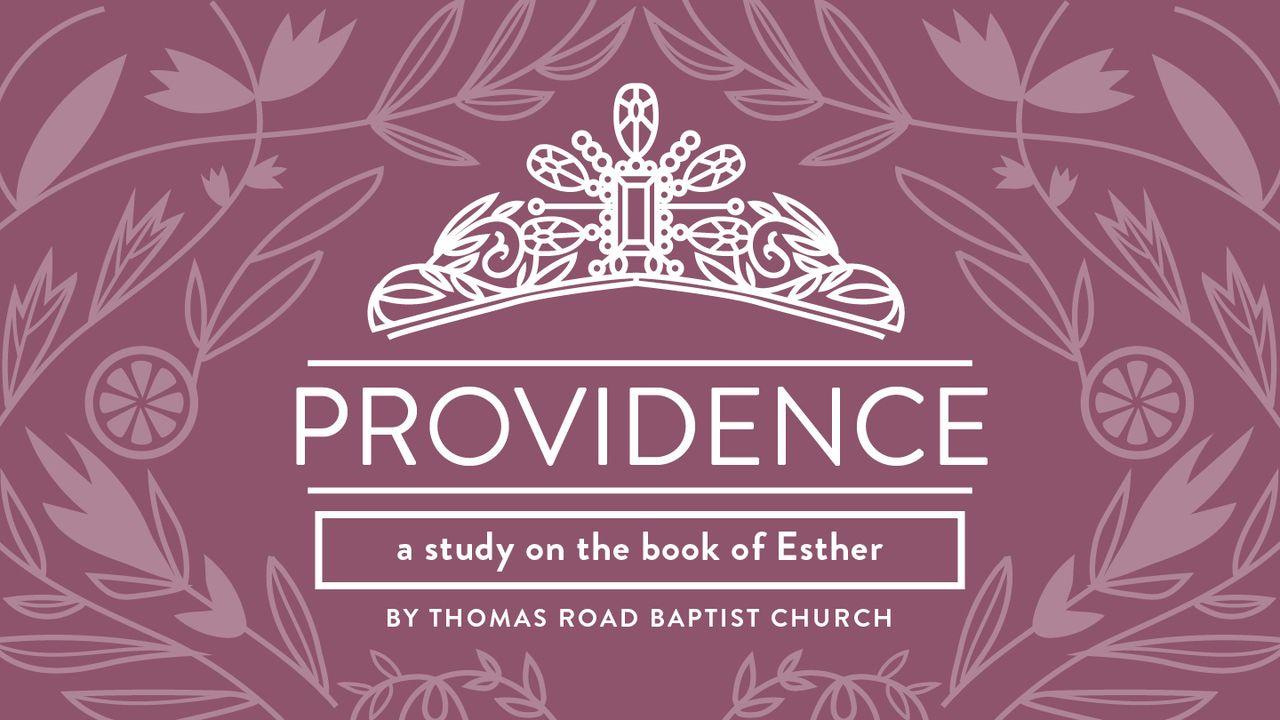Providence: A Study in EstherNäide

What does it say?
King Ahasuerus celebrated his power and wealth. Vashti was removed as queen.
What does it mean?
King Ahasuerus was a proud, quick-tempered man who celebrated his excessive wealth with extravagance. As the king of a vast empire, Ahasuerus was accustomed to controlling everything and everyone. Queen Vashti, however, refused to be controlled. There aren’t clear explanations as to why she refused the king’s order, but her actions breached both royal protocol and cultural etiquette. The king’s humiliation quickly turned to anger. Banishing Vashti from court and removing her as queen seemed the only way to salvage his reputation. Ahasuerus, once again, had the illusion of control.
How should I respond?
Pride often leads us to believe that we know what’s best. Like King Ahasuerus, we try to control our circumstances and the people around us. Manipulation of any kind shows a lack of trust in our sovereign God. What situation has sent you scrambling for a way to fix it? Who are you subtly attempting to control? Examine your plans and motives in light of God’s Word. Ask the Lord to reveal where you’re working toward a different set of goals and on a different timetable than His. Then give those areas over to God’s control.
Pühakiri
About this Plan

The book of Esther is set during the period of exile when God's people are scattered across the Persian empire. As nefarious men plot against the Jews, Esther reminds us that even in dark days God is providentially guiding and protecting His people.
More









